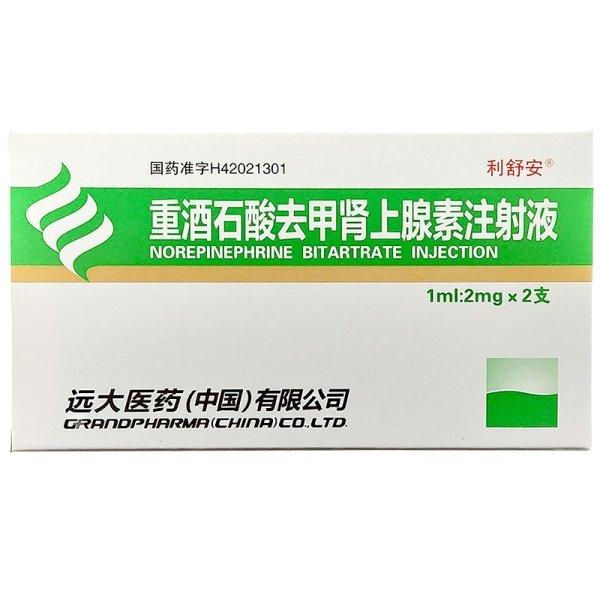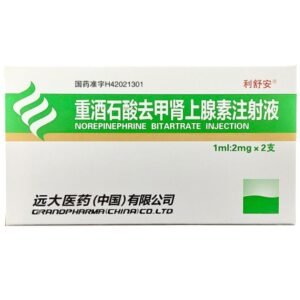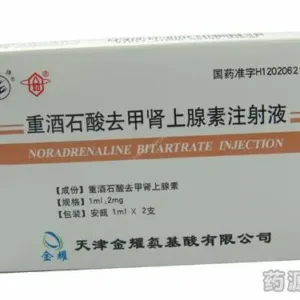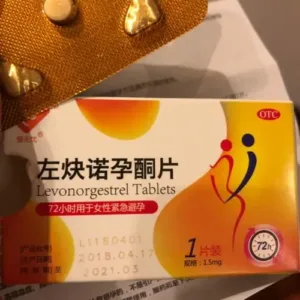Norepinephrine、nor-epinephrine
Function:
It can be used to treat hypotensive symptoms caused by acute myocardial infarction, cardiopulmonary bypass, pheochromocytoma resection, etc.; for shock or hypotension caused by insufficient blood volume, it can be used as an auxiliary treatment to replenish blood volume during first aid to increase the patient’s blood pressure. It can temporarily maintain cerebral and coronary artery perfusion until the blood volume is replenished and exert a therapeutic effect; it can also be used to treat hypotension during neuraxial block and maintain blood pressure after cardiac arrest resuscitation.
Dosage:
Dilute with 5% glucose injection or glucose sodium chloride injection and infuse intravenously. Adults: Start infusion at a rate of 8-12 μg per minute, adjust the infusion rate to achieve an ideal blood pressure level; maintain the dose at 2-4 μg per minute. The above dosage can be exceeded if necessary, but blood volume needs to be maintained or replenished. Pediatrics: Administer according to body weight, start infusion at a rate of 0.02-0.1 μg/kg per minute, and adjust the infusion rate as needed according to blood pressure.
Adverse reactions:
Leakage of drug solution during intravenous administration may cause local tissue necrosis. Norepinephrine has a strong vasoconstrictive effect, which can reduce the blood flow of important organs and organs, and may lead to reduced urine output, tissue hypoxia and acidosis; when used for too long or in large amounts, it can reduce the return blood flow, Peripheral vascular resistance increases, cardiac output decreases, and the consequences are serious. During intravenous infusion, whitening of the vein skin, skin ulceration, cyanosis, redness, and severe dizziness may occur at the injection site. Although the above reactions are rare, they have serious consequences. Rashes, facial edema, etc. may occur due to allergies. Patients with hypoxia, electrolyte imbalance, organic heart disease, or drug overdose may experience arrhythmia; reflex heart rate slowdown may occur after blood pressure increases. Symptoms such as anxiety, dizziness, headache, pale skin, heart palpitations, and insomnia may occur. Symptoms such as severe headache, high blood pressure, slow heart rate, vomiting, and convulsions may occur when the drug is overdosed. If any of the above adverse reactions occur, please inform your doctor or pharmacist in time so that the doctor can determine the extent of the side effects and take necessary measures.
Drug contraindications:
If you are allergic to this product, use with caution during lactation. Use with caution during pregnancy.
Share:
Products
Our offers
Health Classification
Let us work together to protect precious health






























